
Punakha: The Serene Heart of Bhutan
Punakha, a picturesque town nestled in the heart of Bhutan, is a place where nature and culture blend seamlessly. With its lush valleys, terraced rice fields, and the majestic Punakha Dzong, the city offers a tranquil escape from the hustle and bustle of modern life. The Dzong, often referred to as the 'Palace of Great Happiness,' stands at the confluence of the Pho Chhu and Mo Chhu rivers and is a sight to behold especially during the spring when the jacaranda trees are in full bloom. Beyond the Dzong, Punakha is known for its pleasant climate, making it ideal for exploring the surrounding countryside. Visitors can enjoy leisurely hikes through the valleys, visit traditional villages, and experience the warm hospitality of the Bhutanese people. The nearby Chimi Lhakhang, also known as the 'Fertility Temple,' adds a unique cultural layer with its fascinating legends and traditions. Punakha is also a destination for adventure enthusiasts. The rivers offer exciting white-water rafting experiences, while the varied terrain provides excellent opportunities for trekking. The annual Punakha Festival, with its vibrant dances and rituals, is a must-see event that offers deep insights into Bhutanese culture. Whether you're seeking serenity, cultural immersion, or adventure, Punakha has something for every traveler.
Local tips in Punakha
- Visit the Punakha Dzong early in the morning to avoid crowds and enjoy the tranquil atmosphere.
- Carry cash as ATMs are limited and many local shops and eateries do not accept cards.
- Wear comfortable walking shoes for exploring the Dzong and hiking through the valleys.
- Try the local cuisine, especially the traditional dish 'Ema Datshi' – a spicy chili and cheese delight.
- Plan your visit during the Punakha Festival to witness the vibrant cultural performances and rituals.
Punakha: The Serene Heart of Bhutan
Punakha, a picturesque town nestled in the heart of Bhutan, is a place where nature and culture blend seamlessly. With its lush valleys, terraced rice fields, and the majestic Punakha Dzong, the city offers a tranquil escape from the hustle and bustle of modern life. The Dzong, often referred to as the 'Palace of Great Happiness,' stands at the confluence of the Pho Chhu and Mo Chhu rivers and is a sight to behold especially during the spring when the jacaranda trees are in full bloom. Beyond the Dzong, Punakha is known for its pleasant climate, making it ideal for exploring the surrounding countryside. Visitors can enjoy leisurely hikes through the valleys, visit traditional villages, and experience the warm hospitality of the Bhutanese people. The nearby Chimi Lhakhang, also known as the 'Fertility Temple,' adds a unique cultural layer with its fascinating legends and traditions. Punakha is also a destination for adventure enthusiasts. The rivers offer exciting white-water rafting experiences, while the varied terrain provides excellent opportunities for trekking. The annual Punakha Festival, with its vibrant dances and rituals, is a must-see event that offers deep insights into Bhutanese culture. Whether you're seeking serenity, cultural immersion, or adventure, Punakha has something for every traveler.
When is the best time to go to Punakha?
Iconic landmarks you can’t miss
Buddha Dordenma Statue སྟོན་པ་རྡོར་གདན་མ།
Discover the awe-inspiring Buddha Dordenma Statue in Thimphu, a symbol of peace and spirituality nestled in the serene hills of Bhutan.
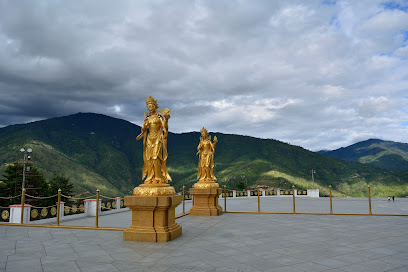
National Museum of Bhutan འབྲུག་གི་འགྲེམས་སྟོན་ཁང་།
Explore the National Museum of Bhutan, where rich history and captivating culture meet in a stunning setting, revealing the soul of this majestic kingdom.
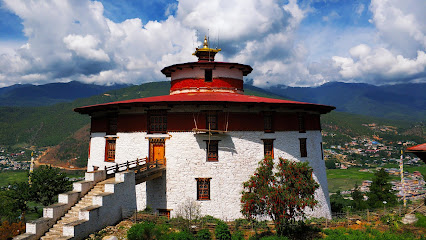
National Memorial Chhorten རྒྱལ་ཡོངས་རྗེས་དྲན་མཆོད་རྟེན།
Discover the tranquility and cultural richness of the National Memorial Chhorten, a significant Buddhist temple in Thimphu, Bhutan.
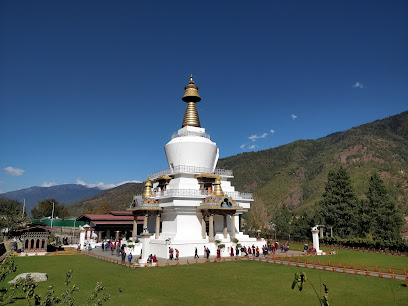
Punakha Suspension Bridge
Discover the breathtaking views and rich heritage at the Punakha Suspension Bridge, the longest of its kind in Bhutan.
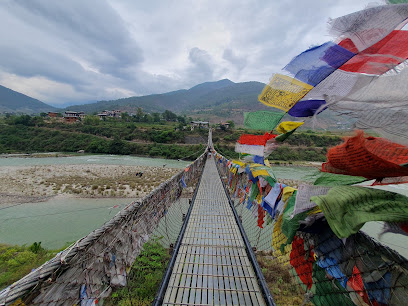
Punakha Dzong སྤུ་ན་ཁ་རྫོང་།
Experience the stunning architecture and serene beauty of Punakha Dzong, a historical Buddhist fortress at the confluence of rivers in Bhutan.
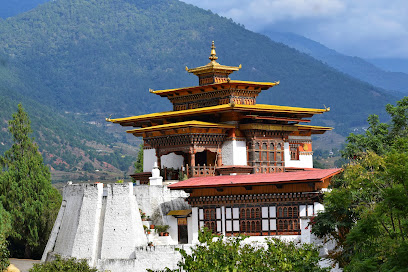
Royal Takin Preserve
Discover the Royal Takin Preserve: A serene sanctuary for Bhutan's national animal and a stunning nature escape for all travelers.
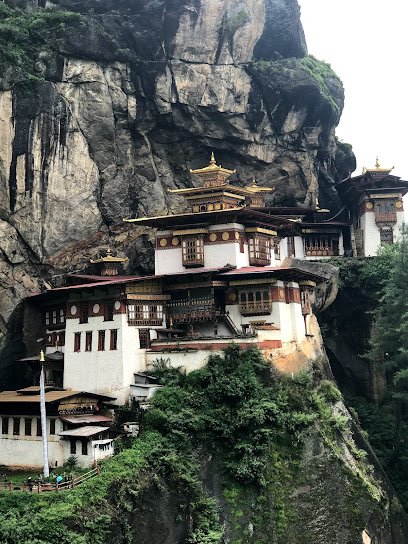
Dochula Chorten
Explore the breathtaking Dochula Chorten, a serene Buddhist temple in Bhutan offering stunning views and rich cultural heritage amidst the Himalayas.
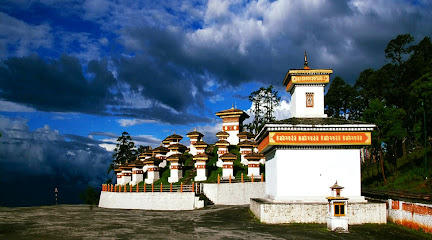
Damchen Resort
Discover tranquility and adventure at Damchen Resort, a stunning retreat in Khuruthang, Bhutan, blending luxury with breathtaking natural beauty.

Zhingkham Resort ཞིང་ཁམས་སྐྱིད་གནས།
Discover tranquility and cultural richness at Zhingkham Resort, a serene getaway in Bhutan's breathtaking Punakha Valley.

Simtokha Dzong སེམས་རྟོགས་ཁ་རྫོང་།
Discover the historical and cultural gem of Simtokha Dzong, a stunning fortress offering breathtaking views and rich Bhutanese heritage.
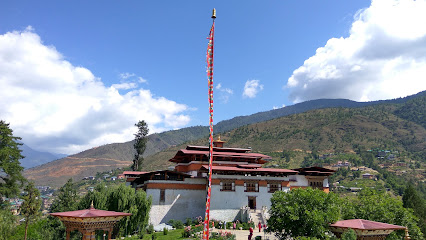
Royal Textile Academy རྒྱལ་འཛིན་ཐག་རིག་སློབ་སྡེ།
Explore Bhutan's vibrant textile heritage at the Royal Textile Academy, a cultural hub showcasing traditional weaving and artistry.
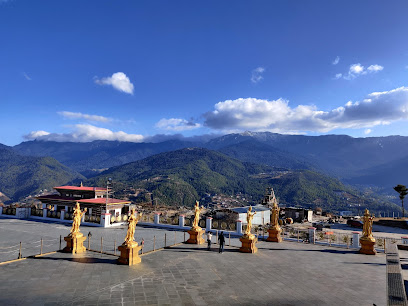
Phobjikha Valley
Explore the serene Phobjikha Valley, where stunning landscapes meet rich biodiversity and unique Bhutanese culture.
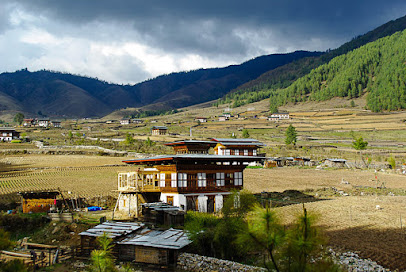
Chimi Lhakhang
Explore Chimi Lhakhang, Bhutan's iconic Fertility Temple, a vibrant spiritual haven with rich cultural heritage and stunning natural beauty.
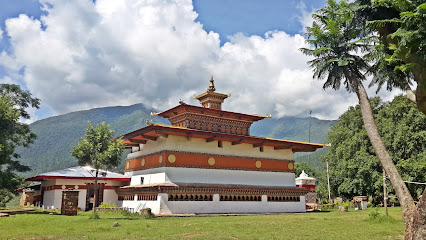
Hotel Lobesa
Experience the tranquility of Bhutan at Hotel Lobesa, a cozy retreat in Punakha offering stunning views and authentic hospitality.
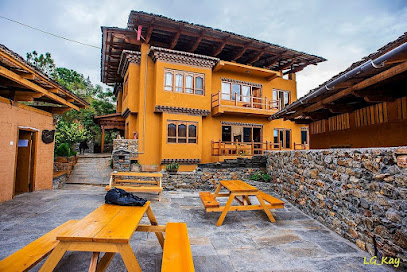
Khamsum Yulley Namgyal Choeten
Discover the spiritual beauty and breathtaking views at Khamsum Yulley Namgyal Choeten in Bhutan's enchanting Punakha Valley.
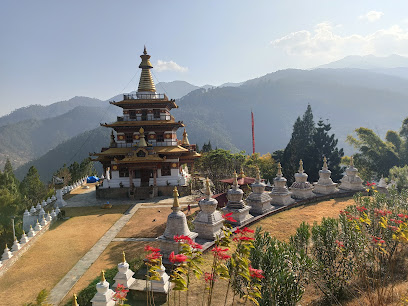
Unmissable attractions to see
National Museum of Bhutan འབྲུག་གི་འགྲེམས་སྟོན་ཁང་།
Explore the National Museum of Bhutan in Paro, a cultural gem showcasing the rich heritage and traditions of the Himalayan kingdom.
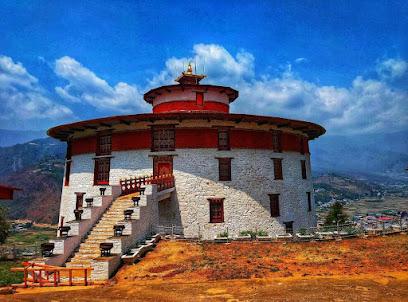
National Memorial Chorten རྒྱལ་ཡོངས་རྗེས་དྲན་མཆོད་རྟེན།
Explore the National Memorial Chorten, a breathtaking Buddhist stupa in Thimphu, where peace and spirituality intertwine in Bhutan's vibrant culture.
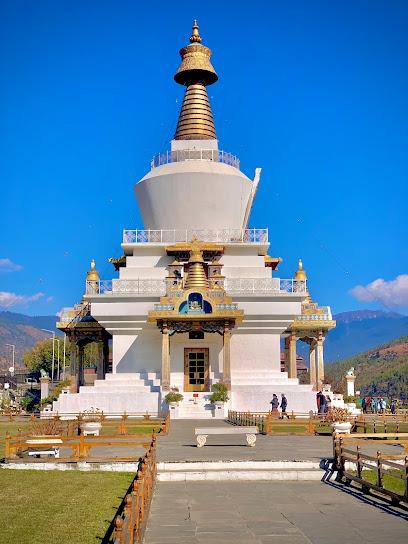
Punakha Dzong སྤུ་ན་ཁ་རྫོང་།
Explore the architectural splendor and spiritual significance of Punakha Dzong, a historical fortress-monastery in the heart of Bhutan.
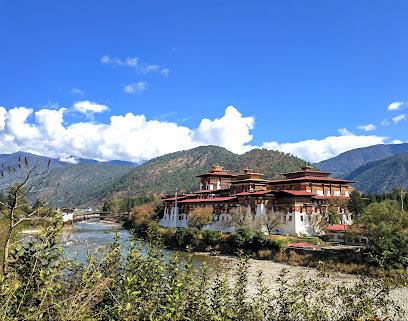
Suspension Bridge, Punakha
Discover the breathtaking Suspension Bridge in Punakha, Bhutan, a stunning blend of nature, culture, and engineering marvel amidst scenic landscapes.
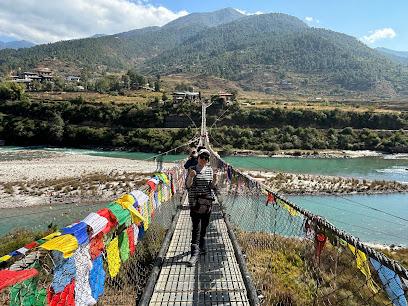
Royal Takin Preserve
Explore the Royal Takin Preserve: A serene wildlife haven showcasing Bhutan's national animal amidst stunning natural beauty.
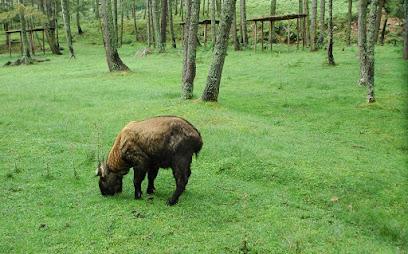
Simply Bhutan
Explore the rich culture and heritage of Bhutan at Simply Bhutan, a captivating heritage museum in Thimphu that offers an immersive experience.
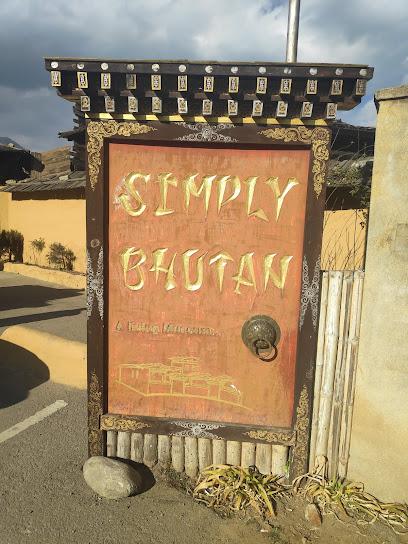
Folk Heritage Museum Kawajangsa
Explore the rich traditions and heritage of Bhutan at the Folk Heritage Museum in Thimphu, a captivating cultural experience for every traveler.
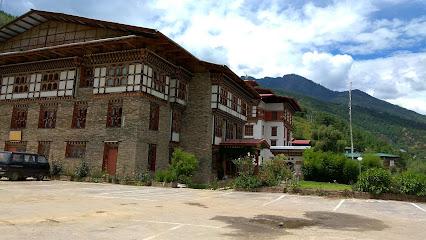
Simtokha Dzong སེམས་རྟོགས་ཁ་རྫོང་།
Discover the beauty and history of Simtokha Dzong, the oldest fortress in Bhutan, showcasing stunning architecture and breathtaking valley views.
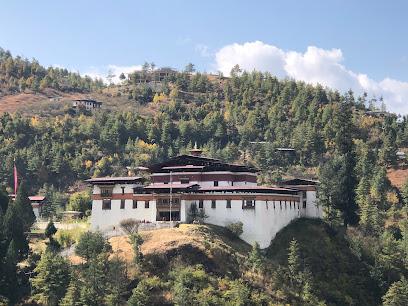
Royal Textile Academy རྒྱལ་འཛིན་ཐག་རིག་སློབ་སྡེ།
Discover the vibrant heritage of Bhutanese textiles at the Royal Textile Academy, a hub of artistry and cultural significance in the heart of the Himalayas.
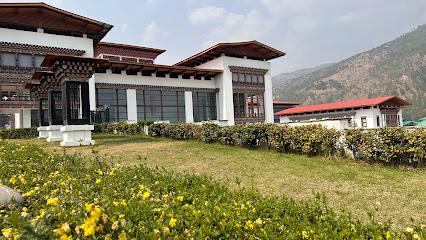
Phobjikha Valley
Experience the breathtaking beauty and tranquil ambiance of Phobjikha Valley, a hidden gem in Bhutan perfect for nature lovers and cultural explorers.
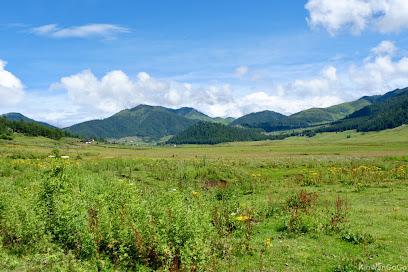
Paro Airport Bird's Eye View Point
Explore the breathtaking views of the Himalayas at the Paro Airport Bird's Eye View Point, a must-visit scenic spot in Bhutan.
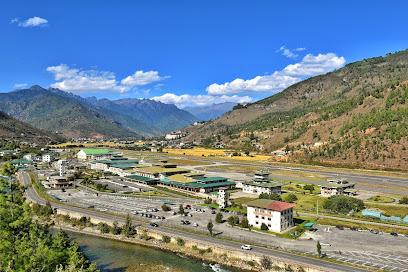
Centenary Farmers Market
Discover the vibrant atmosphere of the Centenary Farmers Market in Thimphu, where local produce and culture come alive every weekend.
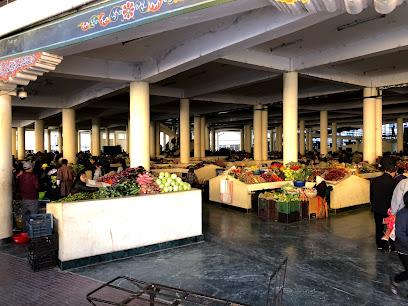
Chimi Lhakhang
Discover Chimi Lhakhang, the enchanting Fertility Temple of Bhutan, where spirituality and stunning landscapes converge in a unique pilgrimage experience.
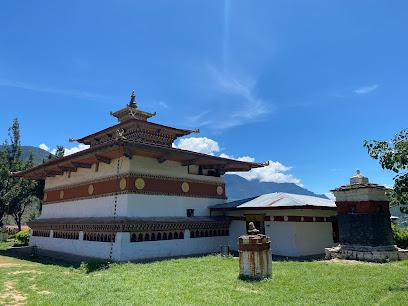
Mojo Park
Discover the heart of Thimphu's nightlife at Mojo Park, a vibrant live music bar offering delicious cuisine and unforgettable performances.
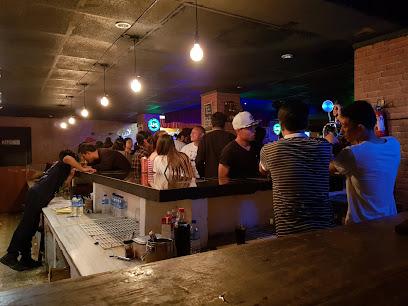
Sangaygang View Point
Experience breathtaking views and serene nature at Sangaygang View Point, a top tourist attraction in Bhutan perfect for relaxation and adventure.
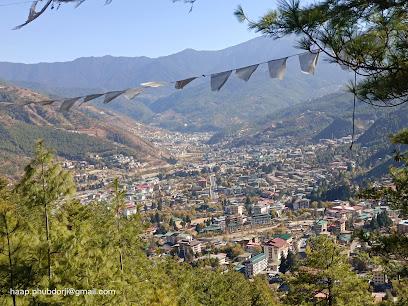
Essential places to dine
MERENGMA' Bistro & Bar
Experience exquisite local flavors and international cuisine at MERENGMA' Bistro & Bar in Khuruthang - a culinary gem for every traveler.
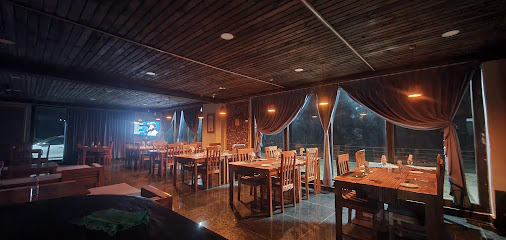
Rinchenling Cafeteria
Experience authentic Bhutanese cuisine at Rinchenling Cafeteria in Thimphu – where every meal tells a story.
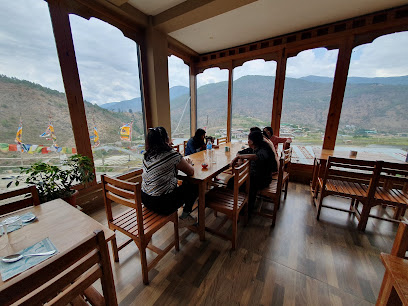
K. B RESTAURANT (Thali Special)
Discover authentic Bhutanese flavors at K. B Restaurant in Wangdue Phodrang, famous for its delectable Thali Special and welcoming atmosphere.
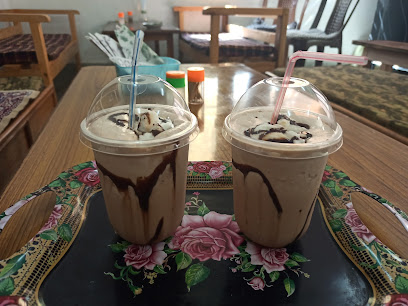
Hotel Chicken Dinner
Experience the rich flavors of Bhutan at Hotel Chicken Dinner, where comfort meets culinary delight in Khuruthang.
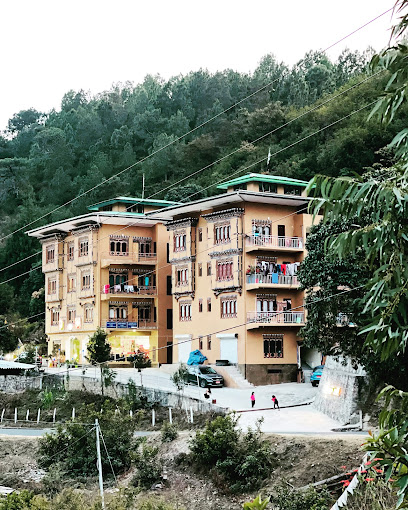
Kuenga Restaurant
Discover the authentic tastes of Bhutan at Kuenga Restaurant in Khuruthang - where tradition meets flavor in every bite.
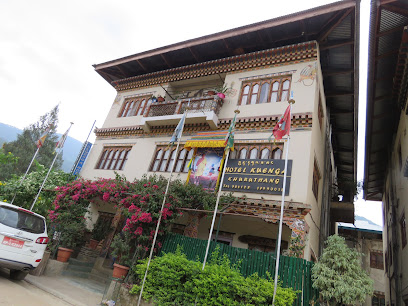
ST WiFi- Tourist Lunch Place
Discover authentic local flavors at ST WiFi - Tourist Lunch Place in Sopsokha, where delightful dishes meet warm hospitality.
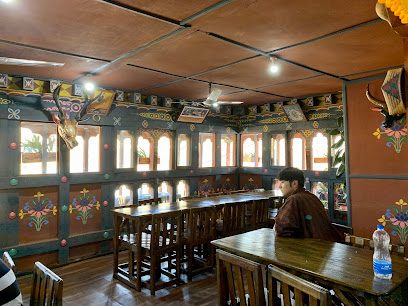
Menchuna Restaurant
Discover authentic Bhutanese flavors at Menchuna Restaurant - a must-visit for food enthusiasts exploring Bhutan.
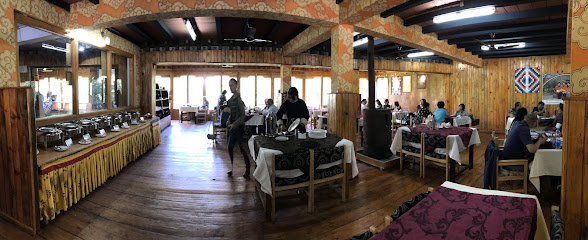
Raven Restaurant
Experience authentic Bhutanese flavors at Raven Restaurant in Khuruthang - where every dish tells a story.
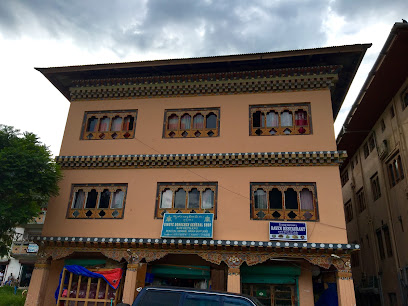
Pizza House & Birthday Celebrate
Discover delicious pizza at Pizza House & Birthday Celebrate in Khuruthang – where flavor meets festivity!
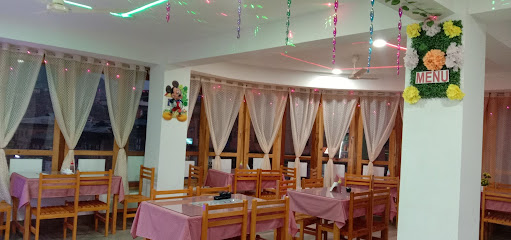
Home Kitchen, Punakha
Experience authentic Bhutanese cuisine at Home Kitchen in Punakha – where tradition meets taste in a cozy atmosphere.
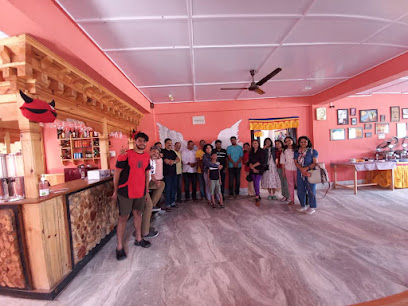
5 Angels restaurant
Experience authentic Bhutanese cuisine fused with global flavors at Khuruthang's favorite dining spot - 5 Angels Restaurant.
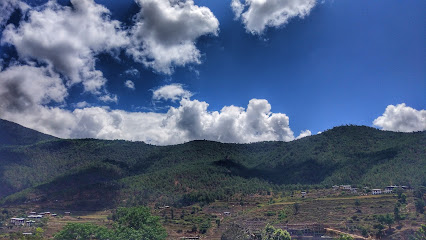
레스토랑
Experience authentic Bhutanese cuisine in a cozy setting while visiting beautiful Punakha.
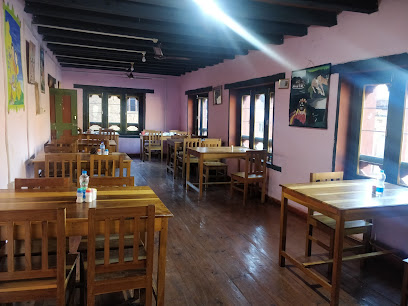
Vintage Cafe
Discover the flavors of Bhutan at Vintage Cafe in Punakha - where every meal tells a story.
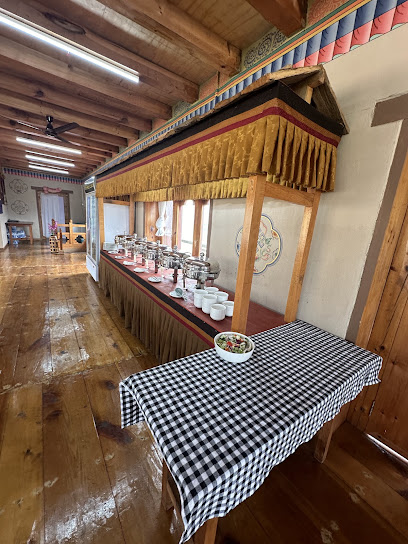
Yak Herder' Camp
Discover authentic Bhutanese flavors and rich cultural heritage at Yak Herder's Camp in Khuruthang.
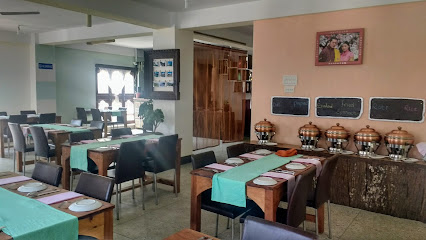
Tenphey Bhutanese cuisine
Experience authentic Bhutanese cuisine at Tenphey in Khuruthang—where every meal tells a story.
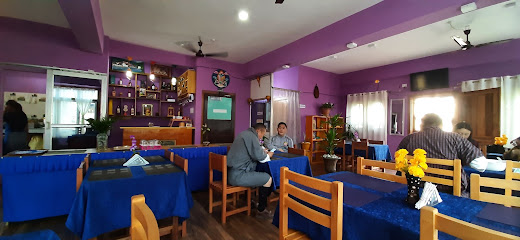
Markets, malls and hidden boutiques
Souvenir shop
Explore Teoprongchu's vibrant souvenir shop for unique handcrafted treasures and authentic local culture.
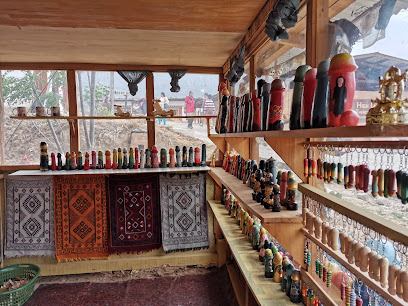
Pradhan General Shop
Explore the vibrant offerings of Pradhan General Shop in Lobesa, where local culture and unique products come together for an unforgettable shopping experience.
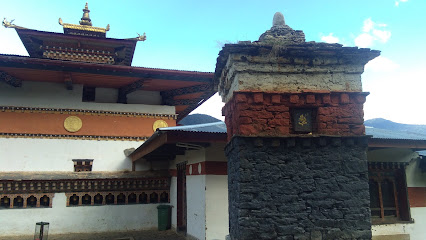
Vegetable Market
Discover the bustling Vegetable Market in Khuruthang, a vibrant showcase of local produce and culture.
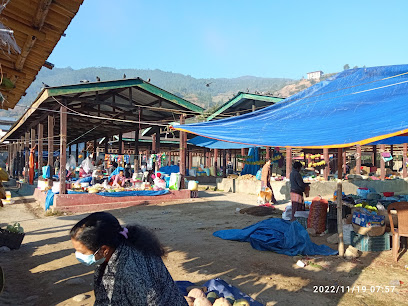
Two Brothers Cafe
Discover the serene ambiance and delightful coffee at Two Brothers Cafe in Punakha, a must-visit for every traveler seeking relaxation and culture.
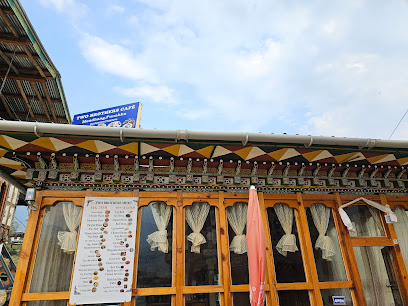
Organic Flour and Oil
Explore the heart of Bhutanese organic culture at Organic Flour and Oil in Khuruthang, where quality meets sustainability in every product.
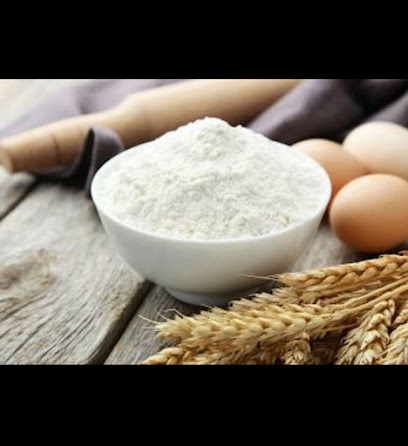
Pulami Shop
Explore authentic Bhutanese handicrafts at Pulami Shop in Punakha, where local artistry meets cultural heritage.
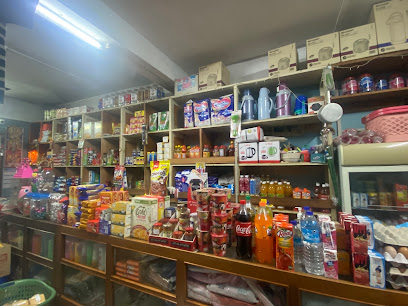
Sonam Lhatu Grocery Shop
Discover the essence of Bhutanese culture at Sonam Lhatu Grocery Shop, where local flavors meet friendly service in Khuruthang.
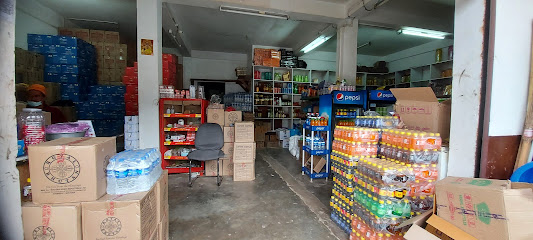
Choden Lham General shop
Discover unique home goods and local crafts at Choden Lham General Shop, the heart of Khuruthang's shopping experience.
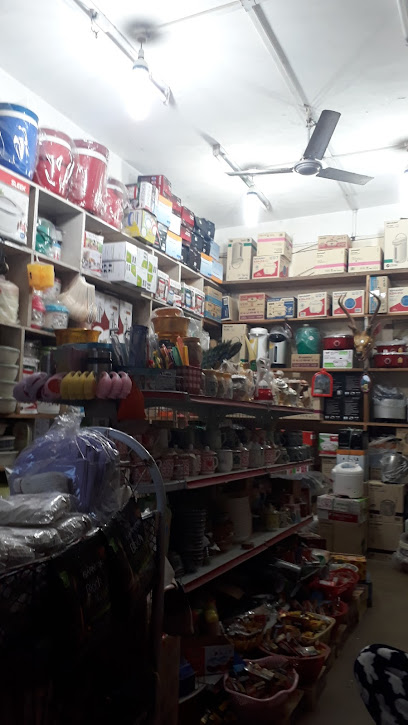
Khuruthang, Punakha
Explore the enchanting town of Khuruthang in Punakha, Bhutan - where culture meets stunning natural beauty and warm local hospitality.
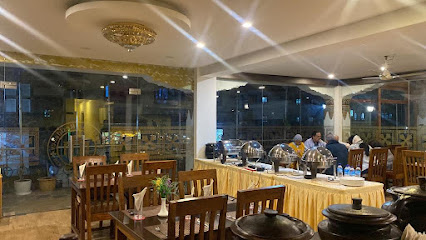
Passang Om General Shop
Immerse yourself in Bhutanese culture at Passang Om General Shop, where authenticity meets local craftsmanship in every purchase.
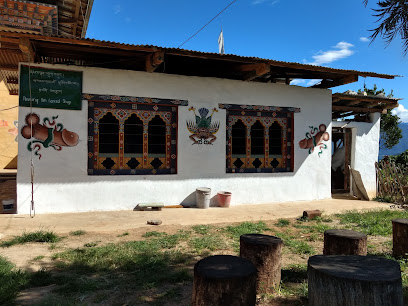
Central Mart
Central Mart in Wangdue Phodrang offers local goods and essentials, making it your go-to convenience store for a memorable travel experience.
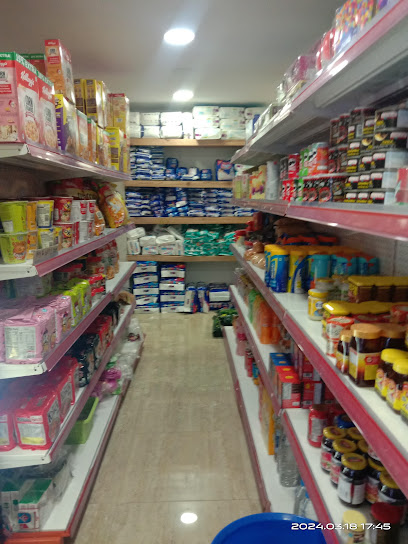
prem pradhan general shop
Explore the vibrant culture of Bhutan through unique clothing at Prem Pradhan General Shop in Wangdue Phodrang.
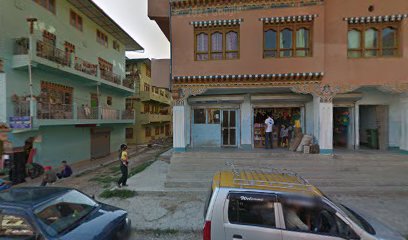
digitalsangay
Explore Digitalsangay, the ultimate smart shop for tourists, offering a wide array of products and local insights to enhance your travel experience.
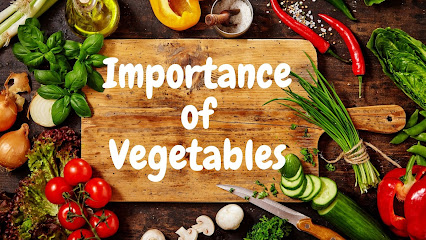
Pema Dechen General Shop
Immerse yourself in local culture at Pema Dechen General Shop, a must-visit destination for authentic Bhutanese goods in Punakha.
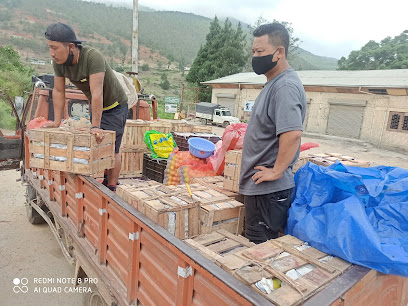
Pradhan Clothings And Gift Shop
Explore authentic Bhutanese fashion and unique gifts at Pradhan Clothings And Gift Shop in Lobesa - Metsina, a must-visit for every traveler.
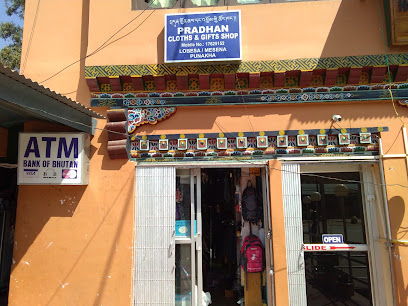
Essential bars & hidden hideouts
MERENGMA' Bistro & Bar
Savor the flavors of Bhutan at MERENGMA' Bistro & Bar, where local ingredients meet international cuisine in a vibrant atmosphere.
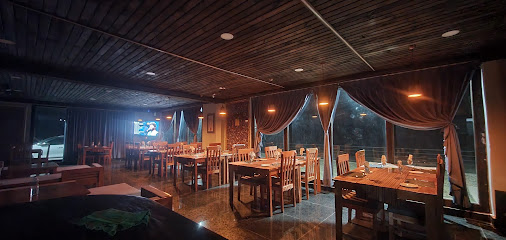
Hotel Chicken Dinner
Experience the best of Bhutanese hospitality and cuisine at Hotel Chicken Dinner in Khuruthang, where comfort meets culinary delight.
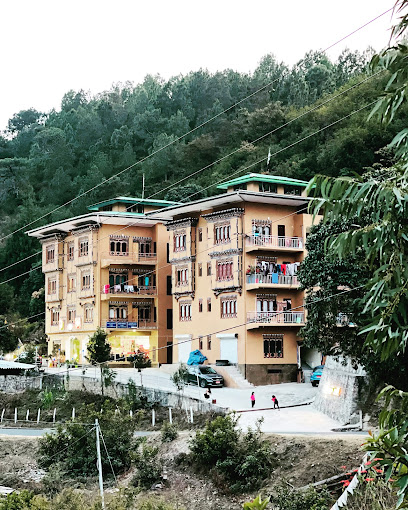
Raven Restaurant
Experience the rich flavors of Bhutan at Raven Restaurant, where traditional dishes meet a warm atmosphere in Khuruthang.
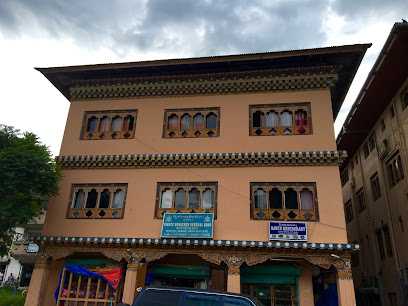
Vintage Cafe
Savor authentic Bhutanese flavors in a cozy, vintage setting at Vintage Cafe, a culinary gem in the heart of Punakha.
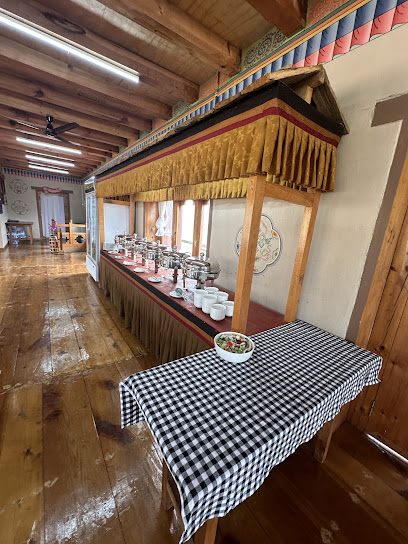
Phendey Restaurant & Bar
Savor the authentic tastes of Bhutan with a delightful fusion of traditional and modern dishes at Phendey Restaurant & Bar.
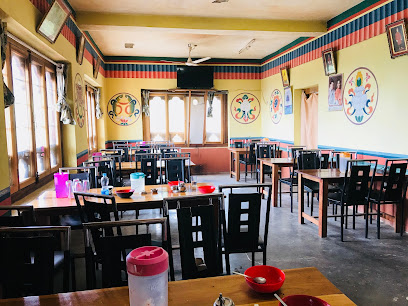
Bridge view resturant
Experience authentic Bhutanese cuisine with breathtaking views at the Bridge View Restaurant in Punakha, a perfect blend of taste and scenery.
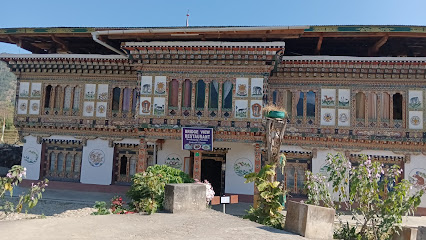
GO CRAZY BAR & Grill
Discover the lively atmosphere and delicious cuisine at GO CRAZY BAR & Grill in Thimphu, Bhutan - a perfect spot for unforgettable nights out.
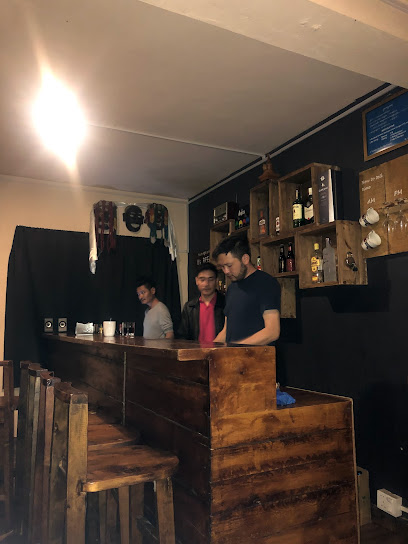
DAZA Restaurant & BAR
Experience the essence of Bhutanese cuisine at DAZA Restaurant & BAR in Punakha, where local flavors meet international culinary artistry.
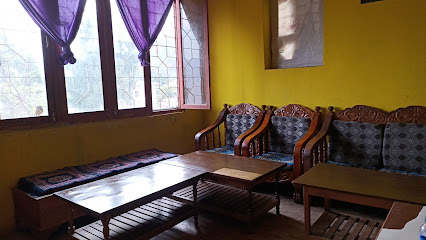
ST Restaurant
Experience authentic Bhutanese flavors at ST Restaurant, a delightful bar in Lobesa - Metsina, perfect for travelers seeking culture and comfort.
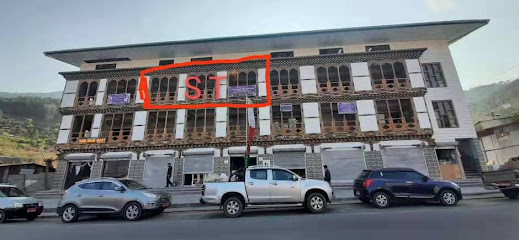
Babee Restaurent
Discover the essence of Bhutanese cuisine at Babee Restaurant in Punakha, a cozy eatery serving local delicacies in a warm ambiance.
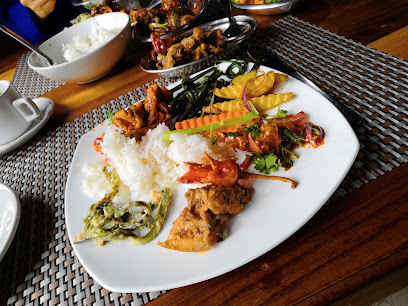
Khuruthag
Experience the vibrant atmosphere and local flavors at Khuruthang's premier bar, a perfect spot for relaxation and socializing.
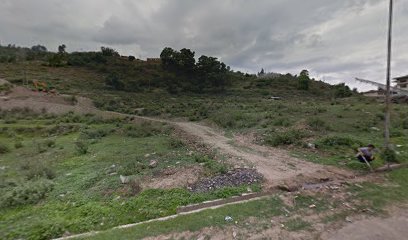
Kamichu Restaurant and Bar
Savor the tastes of Bhutan at Kamichu Restaurant and Bar, offering traditional cuisine and a cozy atmosphere along the Wangdue - Tsirang Highway.
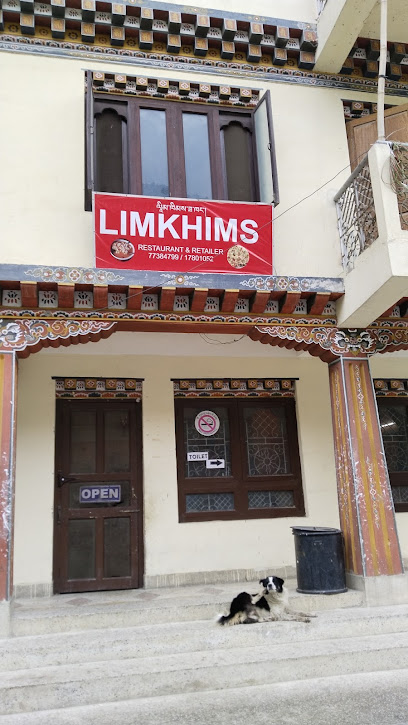
Ugyen bar
Discover the vibrant nightlife at Ugyen Bar in Punakha, where local charm meets an unforgettable drinking experience.
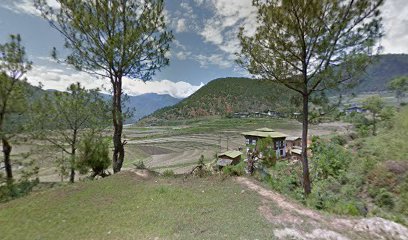
CREATIVE RESTAURANT AND BAR
Discover a family-friendly dining experience at Creative Restaurant and Bar in Punakha, where delightful cuisine meets vibrant atmosphere.
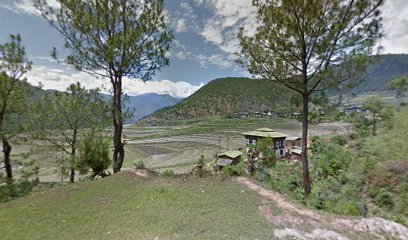
Leki restaurant, khuruthang
Experience the culinary delights of Bhutan at Leki Restaurant in Khuruthang, where local flavors meet stunning views.
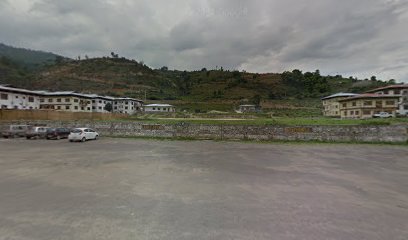
Travel experiences inspired by this city
Explore more travel diariesLocal Phrases
-
- Helloཇོ ར ག དེ
[jo ra ge] - Goodbyeབྱ ཀ ར དེ
[ja ka ra ge] - Yesར ད
[ra ge] - Noམ ད
[ma ge] - Please/You're welcomeབྱ ས ཡ
[ja sa ya] - Thank youག ས ག ད
[ka sa ge] - Excuse me/Sorryད ད བ
[de de ba] - How are you?ཁོ ཤ ས ད འ ར ལ ཀྵ?
[kho sha de ar law?] - Fine. And you?ལ ན. ཁ ང འ ར ལ ཀྵ?
[len. khang ar law?] - Do you speak English?བ ད ར ཚ ཡུ འ ག ར ས ཡ ལ ཀྵ?
[ba da tshu ar sa yal law?] - I don't understandཁ ད འ ར ལ ཀྵ
[kha da ar law]
- Helloཇོ ར ག དེ
-
- I'd like to see the menu, pleaseཁ ཚ ག ར ད
[kha tsha ga de] - I don't eat meatཁ མ ན ཡ ར ད
[kha man ya de] - Cheers!ར མ ཚ
[ra mtsa] - I would like to pay, pleaseཁ ད ལ ད
[kha da la de]
- I'd like to see the menu, pleaseཁ ཚ ག ར ད
-
- Help!ག ད
[ga de] - Go away!ག ས ལ ད
[ga sa la de] - Call the Police!ག ཕ ས ཡ ལ ད
[ga pha sa yal de] - Call a doctor!ག ས ས ཡ ལ ད
[ga sa sa yal de] - I'm lostཁ ཟ ས འ ར ལ ཀྵ
[kha za sa ar law] - I'm illཁ ཡ ཨ ར ལ ཀྵ
[kha ya ar law]
- Help!ག ད
-
- I'd like to buy...ཁ ད ལ ད
[kha da la de] - I'm just lookingཁ ས འ ད
[kha sa da] - How much is it?ཁ ཚ ར ར ད
[kha tshar ra de] - That's too expensiveད ར ར ད མ བ
[da ra de ma] - Can you lower the price?ཁ ཚ མ ར ད འ ར ལ ཀྵ?
[kha tshar ma ar law?]
- I'd like to buy...ཁ ད ལ ད
-
- What time is it?ཁ ཨ ཚ ར ར ད
[kha tshar ra de] - It's one o'clockད ཡ ར ར ད
[da ya ra de] - Half past (10)ཕ ར ར ད
[pa ra de] - Morningས ཊ ཁ
[sa tsa kha] - Afternoonས ཚ ཡ
[sa tshya] - Eveningས ཡ ར ད
[sa ya ra de] - Yesterdayཇ ཡ
[jo ya] - Todayད ར ར ད
[da ra de] - Tomorrowད ག ར ར ད
[da gar ra de] - 1ག ད
[ga de] - 2ག ར
[ga ra] - 3ག ག
[ga ga] - 4ག ཉ
[ga nya] - 5ག ལ
[ga la] - 6ག ཛ
[ga dza] - 7ག ཡ
[ga ya] - 8ག ཀྵ
[ga wa] - 9ག ར ད
[ga ra de] - 10ག ཁ
[ga kha]
- What time is it?ཁ ཨ ཚ ར ར ད
-
- Where's a/the...?ཁ ཨ བ ཨ ར ར ད
[kha ba ar ra de] - What's the address?ཁ ཚ ཚ ཨ ར ར ད
[kha tsha tsha ar ra de] - Can you show me (on the map)?ཁ ལ ད འ ར ལ ཀྵ?
[kha la da ar law?] - When's the next (bus)?ཁ ཐ ཚ ཚ ཨ ར ར ད
[kha tsa tsha ar ra de] - A ticket (to ....)ར ཚ ག ར ད
[ra tsha ga de]
- Where's a/the...?ཁ ཨ བ ཨ ར ར ད
History of Punakha
-
Punakha Dzong, also known as Pungthang Dewa chhenbi Phodrang, meaning 'the palace of great happiness or bliss,' was constructed in 1637-38 by Ngawang Namgyal, the 1st Zhabdrung Rinpoche. It served as the administrative center and the seat of the Bhutanese government until the mid-20th century. The dzong is strategically located at the confluence of the Pho Chhu (Male River) and Mo Chhu (Female River), making it an important cultural and historical landmark in Bhutan.
-
In 1907, Ugyen Wangchuck was crowned as the first King of Bhutan in Punakha Dzong, marking the establishment of the Wangchuck dynasty, which continues to rule Bhutan to this day. This event was a pivotal moment in Bhutanese history as it unified the country under a central monarchy and laid the foundation for modern Bhutan.
-
Signed on January 17, 1910, between the British Empire and Bhutan, the Treaty of Punakha reaffirmed Bhutan's status as an independent country while allowing British influence over its foreign relations. This treaty was a significant diplomatic event that helped shape the country's modern foreign policy and its relationship with neighboring countries.
-
Punakha is renowned for its vibrant annual festivals, the Punakha Drubchen and Punakha Tshechu. The Punakha Drubchen, held in February or March, commemorates the 17th-century victory over the Tibetan forces. Participants reenact the battle scenes in elaborate costumes. The Punakha Tshechu follows the Drubchen and features masked dances and rituals performed by monks, attracting locals and tourists alike.
-
The Punakha Suspension Bridge, one of the longest suspension bridges in Bhutan, spans the Pho Chhu River. Traditionally, the bridge was crucial for connecting Punakha Dzong with the villages on the other side of the river. Though it has been rebuilt multiple times, the current bridge retains its historical significance and is a popular attraction for visitors seeking panoramic views and a taste of Bhutanese engineering.
-
Built to promote peace, stability, and harmony in the world, the Khamsum Yulley Namgyal Chorten was consecrated in 2004. Located on a hilltop overlooking the Punakha Valley, this stupa exemplifies traditional Bhutanese architecture and houses numerous intricate and symbolic murals. Its construction was commissioned by the Queen Mother, Ashi Tshering Yangdon Wangchuck, and it remains a spiritual and cultural landmark in Punakha.
Punakha Essentials
-
Punakha is located in the western part of Bhutan and is accessible mainly via road. The nearest international airport is Paro International Airport, approximately 120 kilometers away. From Paro, you can hire a taxi or take a bus to Thimphu, the capital city, and then another bus or taxi to Punakha. The journey from Paro to Punakha typically takes around 4 to 5 hours, passing through stunning mountain landscapes and the Dochula Pass.
-
Punakha is a relatively small area, and many of its key attractions are within walking distance. For longer distances, local taxis are readily available and reasonably priced. There is also a local bus service that connects Punakha with other cities and towns in Bhutan. Renting a private vehicle with a driver is another convenient option for exploring the region at your own pace.
-
The official currency in Bhutan is the Bhutanese Ngultrum (BTN). Some hotels, restaurants, and shops in Punakha accept credit cards, but it is advisable to carry cash, especially in smaller establishments and rural areas. ATMs are available in Punakha, but it is a good idea to withdraw sufficient cash in larger cities like Thimphu or Paro to ensure you have enough funds for your stay.
-
Punakha is generally considered a safe destination for tourists. However, like any travel destination, it is advisable to take standard precautions. Avoid walking alone at night in unfamiliar areas and keep an eye on your belongings in crowded places. There are no specific high-crime areas targeting tourists, but it is always best to stay vigilant and aware of your surroundings.
-
In case of emergency, you can dial 113 for police assistance and 112 for medical emergencies. Punakha has a local police station and a basic hospital. It is recommended to have travel insurance that covers medical emergencies. For minor health issues, there are pharmacies in the town where you can purchase over-the-counter medications.
-
Fashion: Do dress modestly, especially when visiting religious sites. Avoid wearing revealing clothing. Religion: Do respect local customs and traditions. Always cover your head and remove your shoes when entering temples and monasteries. Public Transport: Do be respectful and give up your seat to elderly passengers. Don’t eat or drink on public transport. Greetings: Do greet people with a friendly 'Kuzuzangpo La' (Hello). A slight bow of the head is also a sign of respect. Eating & Drinking: Do try local delicacies and accept food offerings graciously. Don't refuse hospitality, as it is considered impolite.
-
To experience Punakha like a local, visit the local markets where you can buy fresh produce and traditional Bhutanese goods. Engage with locals, as they are often friendly and willing to share stories about the region's history and culture. Don’t miss visiting the Punakha Dzong, one of Bhutan's most beautiful fortresses, and the Sangchhen Dorji Lhuendrup Nunnery, which offers stunning views of the Punakha Valley. For a unique experience, take a walk along the Punakha Suspension Bridge, one of the longest suspension bridges in Bhutan, offering breathtaking views of the Pho Chhu River.
Trending Landmark in Punakha
-
Buddha Dordenma Statue སྟོན་པ་རྡོར་གདན་མ།
-
National Museum of Bhutan འབྲུག་གི་འགྲེམས་སྟོན་ཁང་།
-
National Memorial Chhorten རྒྱལ་ཡོངས་རྗེས་དྲན་མཆོད་རྟེན།
-
Punakha Suspension Bridge
-
Punakha Dzong སྤུ་ན་ཁ་རྫོང་།
-
Royal Takin Preserve
-
Dochula Chorten
-
Damchen Resort
-
Zhingkham Resort ཞིང་ཁམས་སྐྱིད་གནས།
-
Simtokha Dzong སེམས་རྟོགས་ཁ་རྫོང་།
-
Royal Textile Academy རྒྱལ་འཛིན་ཐག་རིག་སློབ་སྡེ།
-
Phobjikha Valley
-
Chimi Lhakhang
-
Hotel Lobesa
-
Khamsum Yulley Namgyal Choeten
Nearby Cities to Punakha
-
Things To Do in Wangdue Phodrang
-
Things To Do in Thimphu
-
Things To Do in Paro
-
Things To Do in Trongsa
-
Things To Do in Bumthang
-
Things To Do in Jakar
-
Things To Do in Phuentsholing
-
Things To Do in Gangtok
-
Things To Do in Mongar
-
Things To Do in Trashigang
-
Things To Do in Darjeeling
-
Things To Do in Siliguri
-
Things To Do in Rangpur
-
Things To Do in Guwahati
-
Things To Do in Shillong









